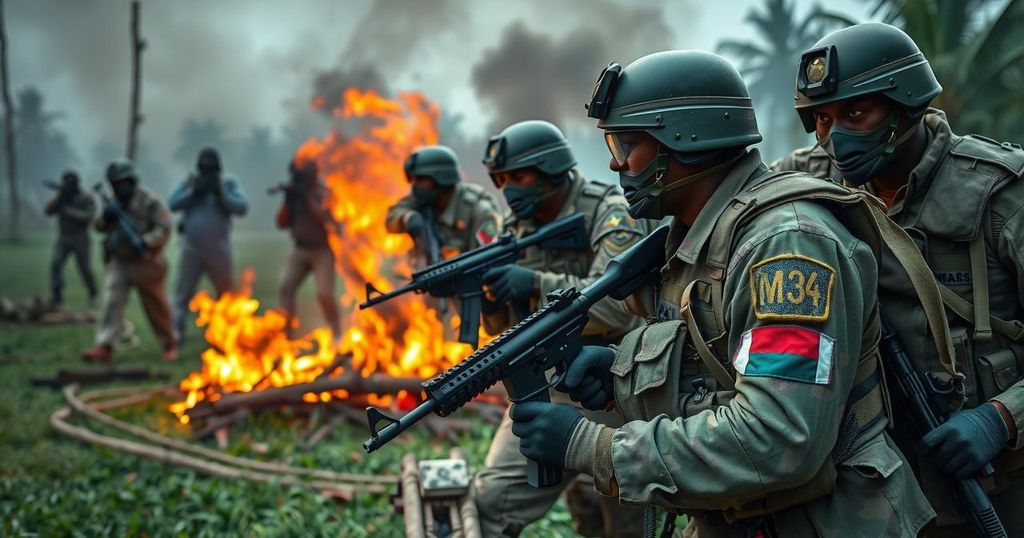The ongoing fighting in North Kivu, DRC, has dislocated over 290,000 people in December 2024, adding to a staggering total of 2.7 million displaced individuals. Armed clashes between the M23 rebel group and the Congolese army, alongside assaults from the ADF, have further deteriorated the humanitarian situation. The conflict is complicated by external support for the M23 from Rwanda, highlighting complex regional dynamics.
The Democratic Republic of Congo (DRC) faces significant humanitarian challenges, particularly in the Lubero region of North Kivu, where increased violence has led to the displacement of over 290,000 individuals in December alone, as reported by the UN Office for the Coordination of Humanitarian Affairs (OCHA). These recent displacements contribute to an alarming total of 2.7 million displaced persons in North Kivu. The ongoing conflict, primarily arising from armed confrontations between the Congolese army (FARDC) and the M23 rebel group has severely impacted civilians, exacerbating an already dire humanitarian situation.
In addition to the M23, the Allied Democratic Forces (ADF) have resumed attacks, further heightening the vulnerability of those already displaced. The ADF, a Ugandan rebel group with affiliations to the Islamic State, has been terrorizing local populations in the region for years. Conversely, the M23 is notably supported by Rwandan military resources, which has facilitated its control over strategic territories in the eastern DRC. These dynamics underscore the complexity of local conflicts, reflecting broader regional tensions.
The situation intensified amid the breakdown of peace negotiations held in Luanda, Angola, in mid-December. The city of Masisi has seen a tumultuous struggle for power, changing hands multiple times between M23 forces and the Congolese army, supported by local militias. Currently, while the Congolese government has recaptured the city, the M23 retains control over the pivotal hills surrounding it, posing ongoing threats to stability in the area.
The ongoing conflict in North Kivu, particularly involving the M23 and ADF, has created profound humanitarian crises. With approximately 2.7 million individuals displaced due to armed conflict, the region exemplifies the severe impacts of warfare on civilian populations, including the destruction of communities and disruption of essential services. The M23’s ties to foreign support, specifically from Rwanda, further complicate the local geopolitical landscape, while the ADF’s insurgencies contribute to the persistent insecurity affecting the populace. The lack of effective peace resolutions exacerbates these issues, limiting prospects for stability and recovery.
In conclusion, the conflict in North Kivu is characterized by significant displacements and hardships for the local population, primarily due to the violent confrontations between the M23 and Congolese forces. The ongoing insurgencies, coupled with external military support for rebel groups, illustrate a grim outlook for peace and stability in the region. This situation necessitates urgent humanitarian intervention and renewed efforts toward dialogue to address the root causes of conflict and the needs of displaced communities.
Original Source: www.fides.org






